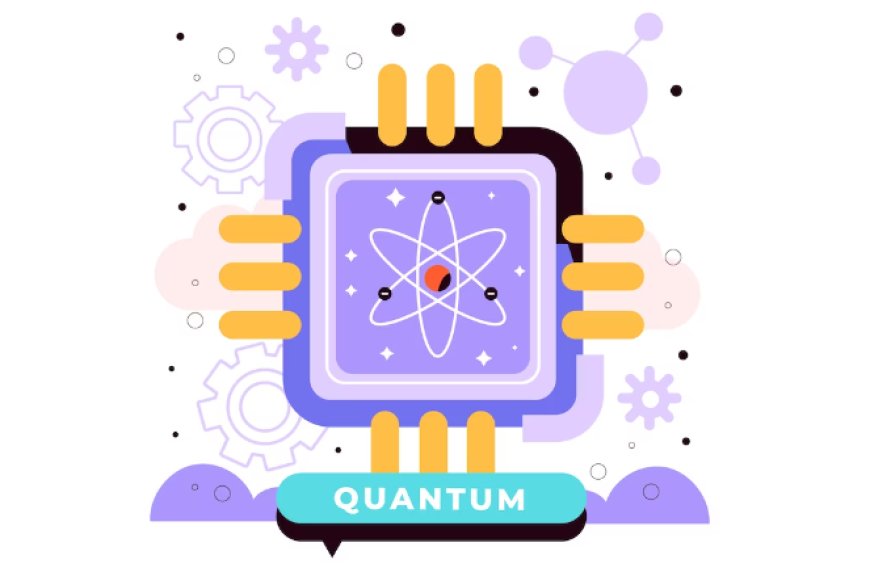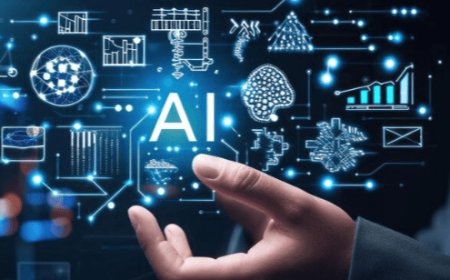Quantum AI: Merging Quantum Computing with AI
Explore the fascinating world of Quantum AI, where Quantum Computing and AI merge to create powerful and revolutionary technologies.

Quantum AI represents a fascinating and cutting-edge frontier where the worlds of quantum computing and artificial intelligence converge. The potential of this interdisciplinary field is vast, promising groundbreaking advancements and unlocking new possibilities for solving complex problems that were once considered infeasible. In this blog, we will explore the exciting realm of Quantum AI, understanding the fundamentals of quantum computing, its applications in AI, and the challenges and opportunities it presents.
Understanding Quantum Computing
Understanding Quantum Computing with AI requires delving into the synergistic relationship between two cutting-edge fields: quantum computing and artificial intelligence. Quantum computing harnesses the principles of quantum mechanics to perform computations that go beyond the capabilities of classical computers. Artificial intelligence, on the other hand, aims to simulate human intelligence and decision-making using algorithms and data. By combining the power of quantum computing's superposition and entanglement with AI's ability to process vast amounts of data, Quantum AI offers the potential to revolutionize various domains.
Key Aspects of Quantum Computing with AI:
-
Quantum Parallelism: Quantum computers can process multiple possibilities simultaneously, enabling exponentially faster computation for certain tasks. AI algorithms can leverage this quantum parallelism to accelerate complex computations like optimization and machine learning.
-
Quantum Algorithms for AI: Researchers are exploring quantum algorithms specifically designed for AI tasks, such as quantum machine learning and quantum neural networks. These algorithms aim to solve problems more efficiently than classical counterparts, offering new insights and enhanced predictive capabilities.
-
Quantum Data Processing: Quantum AI explores the efficient processing and analysis of large datasets using quantum techniques. Quantum algorithms can extract patterns and insights from vast datasets, contributing to advanced data-driven decision-making in AI applications.
-
Quantum Simulation: Quantum computers excel at simulating quantum systems, enabling scientists to explore complex quantum phenomena. AI can analyze the simulation results to extract valuable insights, especially in fields like quantum chemistry and materials science.
-
Quantum Error Correction for AI: Quantum computers are prone to errors, and quantum error correction techniques are crucial for reliable computations. AI algorithms can aid in error correction and fault tolerance, ensuring the accuracy of quantum computations.
-
Quantum Machine Learning Hybrid Models: Hybrid models combining classical machine learning with quantum algorithms hold great promise. These models use classical data preprocessing and feature engineering with quantum processing for the core computational tasks, leveraging the strengths of both classical and quantum computing.
Applications of Quantum Computing with AI
The fusion of Quantum Computing and AI opens up a plethora of applications, including:
-
Optimization: Solving complex optimization problems in logistics, finance, and supply chain management faster and more efficiently.
-
Machine Learning and Pattern Recognition: Enhancing AI's pattern recognition capabilities for image and speech recognition, natural language processing, and data classification.
-
Drug Discovery: Accelerating drug discovery processes by simulating molecular interactions and predicting molecular properties accurately.
-
Cryptography: Addressing quantum computing's potential impact on cryptographic methods by developing quantum-safe encryption and security protocols.
-
Quantum Natural Language Processing: Improving language modeling, sentiment analysis, and language translation using quantum techniques.
The Future of Quantum Computing with AI
Quantum Computing with AI represents an exciting frontier that has the potential to disrupt industries and reshape our understanding of computation and intelligence. As quantum technologies advance, we can expect quantum computers to collaborate with AI algorithms to solve problems previously considered insurmountable.
However, the field faces challenges such as scaling quantum hardware, error correction, and the need for specialized quantum algorithms. Research and investment in Quantum AI are rapidly increasing, with academic institutions, tech giants, and startups contributing to the progress.
Challenges and Opportunities
While Quantum AI holds immense promise, it faces significant challenges:
-
Quantum Hardware Limitations: Building and maintaining stable quantum hardware remains a formidable challenge due to the delicate nature of qubits.
-
Quantum Error Correction: Quantum systems are prone to errors, necessitating robust error correction techniques.
-
Hybrid Approaches: Hybrid quantum-classical algorithms will likely play a crucial role in practical Quantum AI applications.
-
Scalability: Scaling quantum systems to handle complex AI tasks requires overcoming scalability issues.
Despite these challenges, Quantum AI presents extraordinary opportunities for groundbreaking advancements in computation, optimization, and problem-solving. Researchers, businesses, and governments worldwide are investing in Quantum AI research, paving the way for a future where quantum computers and AI algorithms collaborate to revolutionize industries and reshape our understanding of computation.
The Path Forward For Quantum AI
The path forward for Quantum AI is paved with unprecedented opportunities and exciting challenges. As researchers and practitioners delve deeper into the convergence of quantum computing and artificial intelligence, key areas will shape the future of this cutting-edge field. Advancements in quantum hardware, quantum algorithms for AI tasks, and quantum error correction techniques will be crucial for building more stable and reliable quantum computers. Hybrid quantum-classical approaches will play a pivotal role in practical Quantum AI applications. Additionally, research into quantum-safe cryptography and quantum cloud services will address security concerns and promote accessibility. Collaboration among academia, industry, and governments, along with a focus on quantum education and workforce development, will create a skilled community capable of harnessing the full potential of Quantum AI. Embracing this quantum revolution, we are embarking on an exhilarating quest into a realm where computation and intelligence transcend classical boundaries, reshaping technology and science for generations to come.
Embracing The Quantum Revolution
Embracing the Quantum Revolution is a transformative step towards unlocking unprecedented computational power and intelligence. As Quantum Computing with AI evolves, it promises breakthroughs in optimization, machine learning, cryptography, and more. Addressing challenges in quantum hardware, error correction, and algorithm design, researchers collaborate to shape the future of Quantum AI. With exponential speedup and new problem-solving capabilities, Quantum Computing with AI holds immense potential to reshape industries and our understanding of computation. As academia, industry, and governments invest in this cutting-edge fusion, we embark on a thrilling journey towards a quantum-powered future, where innovation knows no bounds.
Collaborative Efforts And Future Outlook
Collaborative Efforts and Future Outlook are vital components for the success of Quantum Computing with AI. Researchers, academia, industry leaders, and governments worldwide unite to push the frontiers of this interdisciplinary field. By fostering collaboration, knowledge exchange, and sharing quantum resources, Quantum AI advances rapidly.
The future outlook for Quantum Computing with AI is filled with promise and excitement. As quantum hardware improves and quantum algorithms mature, practical applications will emerge across diverse domains. Quantum AI's potential to revolutionize optimization, machine learning, cryptography, and more is driving investment and research.
The collaborative spirit and vision for the future fuel our journey towards harnessing quantum-powered intelligence. With each step forward, we draw closer to a quantum-powered world, where innovation transforms industries and redefines the limits of computation and intelligence. The future is bright, and the quantum revolution holds endless possibilities for humanity's technological evolution.
Quantum AI represents the fusion of quantum computing's extraordinary capabilities with the intelligence of artificial intelligence. This convergence opens up exciting possibilities, from optimizing supply chains to revolutionizing drug discovery and making breakthroughs in machine learning. Although Quantum AI is still in its early stages, it holds the promise of solving problems that are currently intractable for classical computers. As the field progresses, Quantum AI is expected to play an increasingly significant role in shaping the future of computation and AI, transforming industries and our understanding of the universe. The future of Quantum AI is one of endless potential and awe-inspiring possibilities, and we are at the cusp of an exhilarating journey into this quantum-powered realm of artificial intelligence.











































